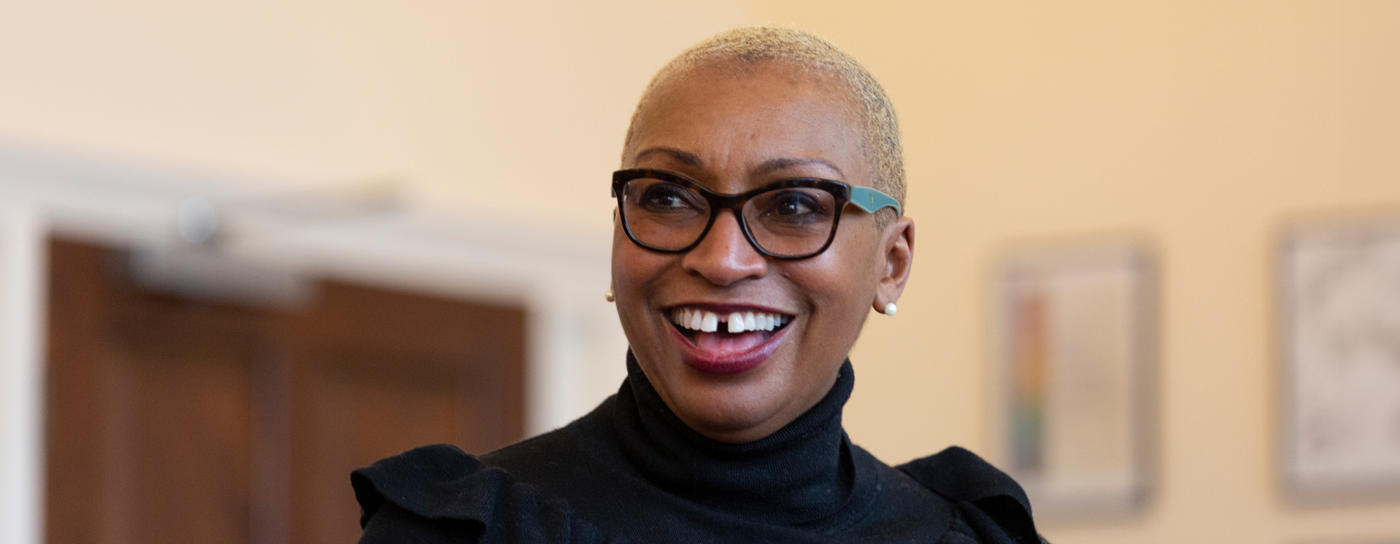July 7, 2024
The 60-year-old Sandie Okoro previously broke barriers as the first Black woman to hold the position of senior VP and general counsel for the World Bank Group.
Sandie Okoro has been named the eighth Chancellor of the University of Birmingham, succeeding Lord Bilimoria who is stepping down in July after serving the university in that role for the past 10 years. Okoro, who graduated from the University of Birmingham in Birmingham, England, is a highly regarded lawyer and champion of equality and will be the university’s first female Chancellor.
According to the University of Birmingham’s press release, Okoro sees the appointment as an opportunity for her to give back to the university. “The wonderful University of Birmingham is the alma mater to three generations of the Okoros, my mum, me and my son. So my connection to it is very special indeed. I have followed the University’s outstanding progress very closely since my days there as a student on a full grant back in the 1980s – its dedication to impactful research, its focus on creating an inclusive environment for talented, minority students and educational excellence are themes very close to my heart.”
Okoro continued, “I am truly honored and delighted to be appointed Chancellor. It’s a fantastic opportunity for me to give a little something back to the amazing University that has given so very much to me and my family.”
💃🏾Thanks to @unibirmingham for the appointing me as their first female Chancellor. It’s a true honour. UoB’s focus on impactful research, excellence in education & inclusion are topics very close to my ❤️. As a proud UoB graduate I know education is the key to a bright future 💃🏾
Adam Tickell, who will be Okoro’s second in command as vice chancellor at the University of Birmingham, expressed his excitement in a statement. “We are excited to welcome Sandie as our new Chancellor. She is a highly respected trailblazer in the corporate legal sector and is of course a proud University of Birmingham graduate. To hear her talk about breaking glass ceilings and aiming high is inspirational and reflects the attitude and passion of our university and our commitment to championing equality, diversity and inclusion.”
The 60-year-old Okoro previously broke barriers as the first British national and Black woman to hold the position of senior vice president and ggeneral counsel for the World Bank Group. During her tenure there, she was primarily responsible for being the main advisor and spokesperson for all legal matters for the World Bank. Okoro was also the vice president for Compliance at the World Bank.
Okoro also received an honorary doctorate from the City University of London in 2014 due to her “outstanding achievements in the legal profession and financial services.” At the time, she worked for HSBC Global Asset Management as their Global General Counsel, which made her the only ethnic minority to serve in that role for the company.
Okoro told the Financial Times while employed at the World Bank that a central part of her identity and her ability to break barriers in the financial industry, both in England and abroad, is her background as a Black woman from South London. “Everybody at work knows I’m from South London, even if they don’t know where that is. It’s something I’ve worn with pride, and it’s given me a bullish sense that I can do anything,” Okoro said. “You really don’t mess with South London girls, and black South London girls in particular. We have to grow up pretty fast, and we have to grow up with a sense of turf.”
According to Okoro, her time as chair of the World Bank Group Task Force on Racism caused her to reflect on injustices she suffered as a child. “It has completely changed my view. I thought people experienced racism in the same way but, even at this late stage, and in the post-George Floyd environment, that opportunity to challenge myself has taught me things,” she told the outlet. “It’s taken me back to my own childhood, because I hadn’t been aware of how racism had affected me.”
Okoro continued, “It’s a matter of choosing what to focus on. You can choose to accept it or not to accept it, to see it or not to see it,” she says. “I don’t ignore it to the extent that I don’t think it exists, and I don’t ignore it in the wider world, but I’ve ignored the effect that it’s had on my life – and that’s very powerful, because you are then in control.”
Enter your Email Address below to get our fun-filled Newsletter!
© 2024 Black Enterprise. All Rights Reserved.

